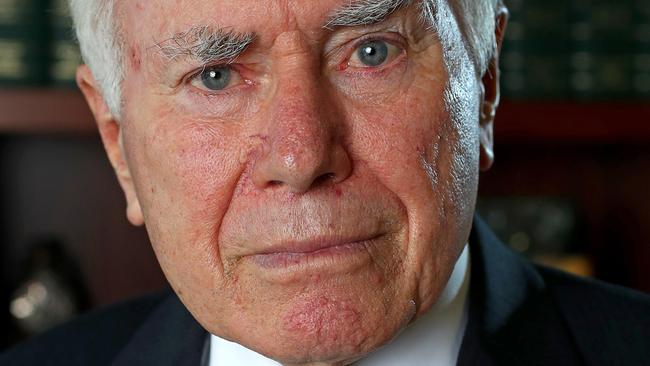2001 cabinet papers reveal cabinet caution on Afghanistan
The Howard government initially opposed any long-term military commitment to Afghanistan in the months after the 9/11 terror attacks, the 2001 cabinet papers show.

The Howard government initially opposed any long-term military commitment to Afghanistan in the months after the 9/11 terror attacks, the 2001 cabinet papers show.
The thinking was starkly at odds with the Howard government’s subsequent support for Australia’s long-term involvement in the conflict that became the country’s longest war, taking the lives of 41 Diggers between 2001 and 2021.
Australia sent around 100 special forces into Afghanistan in October 2001, a month after the terror attacks on New York and Washington, to help US forces destroy the bases from which al-Qa’ida leader Osama bin Laden had plotted the attacks.
Mr Howard said at the time: “We should be clear about our aims in this operation. The immediate goal is to seek out and destroy al-Qa’ida and ensure Afghanistan can never again serve as a base from which terrorists can operate.”
But a cabinet minute by the National Security Committee on December 10, 2001 – three months after the 9/11 attacks – makes it clear that the government saw the Afghanistan mission as temporary.
The cabinet believed there was “the possibility of a firm request, at some stage (from the US), that Australia commit ADF resources to some form of stabilisation or peace keeping force in Afghanistan”.
“The committee agreed that the Government was not inclined to commit significant ADF assets or personnel to any medium-term or long-term stabilisation or peace keeping force in Afghanistan,” said the minute, which was classified as secret.
However, cabinet papers do show that in December 2001, the government was willing to discuss with the UK a request for a possible Australian military contribution to a temporary UK-led stabilisation force to be deployed in Kabul.
The government was also expecting at that time a possible request from the US for ADF assistance in counter-terrorism operations outside of Afghanistan. Cabinet was noncommittal, saying that Australia would only consider such a move if the US made a specific request, which was then agreed to by the NSC.
This initial coalition mission in Afghanistan in 2001 was a stunning success and a year later Australian forces returned home with al-Qa’ida’s bases in ruins and bin Laden on the run.
But Australia’s mission in Afghanistan changed fundamentally in 2005 when the Howard government agreed to US requests to dispatch more special forces to fight a resurgent Taliban. It was a decision aimed at showing that Australia was a good ally.
Howard told the departing troops that their mission was now much broader than destroying al-Qa’ida – it was to help transform Afghanistan into a democracy.
“It’s very important and in fact it’s fundamental to the war against terror that Afghanistan be given the opportunity to fully embrace democracy,” Mr Howard said.
From this moment on, Australia was hitched to the US in trying to convert a country, known as the “graveyard of empires”, to a democratic system of government. The US, NATO and Australia embraced “mission creep” – steadily increasing their military presence to combat the Taliban forces, which could never be properly defeated on the battlefield.
Australia’s military presence in the country grew steadily from 300, in early 2007, to 1000 in mid-2008 and 1550 by mid-2009.
In late 2013, then prime minister Tony Abbott finally declared the end of Australia’s combat mission in Afghanistan, saying, “Australia’s longest war is ending. Not with victory, not with defeat, but with, we hope, an Afghanistan that is better for our presence here”.
Although Australia was no longer engaged in fighting, it maintained an ongoing presence, with around 400 Australians remaining as trainers and advisers to the Afghan army. But the war against the Taliban had effectively been lost. After the US signalled earlier this year that it would withdraw from Afghanistan, Australia closed its embassy in Kabul in May and withdrew its troops.




To join the conversation, please log in. Don't have an account? Register
Join the conversation, you are commenting as Logout